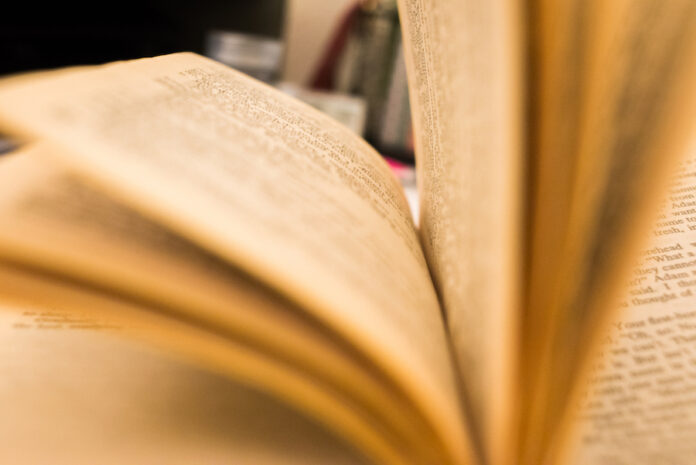
The digital age has shifted the reading discourse
 At the corner of Speedway Boulevard and Wilmot Road, a certain store awaits shoppers as they brave the stifling heat to browse its wares. After entering through the sliding doors, these shoppers will eye rows and rows of red-orange shelves, stacked high with an assortment of goodies. Is it a Martian rendition of Walmart? A marijuana dispensary? No, it’s a used bookstore — something that deserves to be recognized for its steadfast commitment to the art of traditional reading.
At the corner of Speedway Boulevard and Wilmot Road, a certain store awaits shoppers as they brave the stifling heat to browse its wares. After entering through the sliding doors, these shoppers will eye rows and rows of red-orange shelves, stacked high with an assortment of goodies. Is it a Martian rendition of Walmart? A marijuana dispensary? No, it’s a used bookstore — something that deserves to be recognized for its steadfast commitment to the art of traditional reading.
This particular used bookstore is called Bookmans, and it’s somewhat of a cultural icon in Tucson, where I’m from. Its bookshelves beckon readers of all ages, from the teeniest toddler flipping through picture books to Don DeLillo fans and everyone in between. Bookmans atmosphere lives and breaths dog-eared pages and crinkled covers, quintessential components of used books.
Yet Bookmans is not unique in this regard — every used bookstore I’ve visited has invoked this classic image, one that places page-turning above profits, providing access to cheap books and an environment conducive to reading.
Logos Books, right here in downtown Davis, is no exception. Its soft lighting, classical music and tight shelving can tickle a reader’s heart and turn a novice into a bibliophile in no time. That’s the power of used bookstores. They allow a special sort of bond to form between books and their readers, a living connection with pages that have been turned and prodded and marked up by the pens of previous owners.
There’s satisfaction in a worn page or a smudge in the ink — the book’s been used, picked apart, read in bed or at the beach, perhaps thrown at a wall because of a sucky ending. It’s been read, even if only theoretically. Someone took the time to buy or donate or pass the book around. There’s been interaction, and books are designed for interaction.
New bookstores maintain an atmosphere of sterility that contrasts with their used-book cousins. While the selection at new bookstores may be more extensive (though not always), outrageous prices diminish any good feelings created by stepping into the bookstore in the first place. When a paperback copy of George R.R. Martin’s “A Feast for Crows” costs more than two Chipotle burritos, who can be blamed for turning to other sources for cheaper books — with more interaction to boot?
Used bookstores may be part of the reason why new books are so expensive — but that’s chump material when we realize that used bookstores offer a classic reading experience that exceeds that of their new-book counterparts.
Everyone always talks about technology’s effects on reading. Debates rage over gadgets like e-readers, which have been the target of scorn from more traditional book readers. Conflicts have emerged over the issue of printed reading versus reading on screens.
These arguments fail to notice the physical void technology has created when it comes to new bookstores. Led by online giants like Amazon, it’s now easier than ever to browse, digest good reviews and order a book without leaving your futon. This increasingly modern trend has caused a ripple effect, in which brick-and-mortar book retailers for new books are forced to add online ordering to their business model or risk losing a share of the reading market.
Barnes & Noble adapted well to this blend of online and physical bookselling retail. On the other hand, Borders, which used to be the country’s second largest-bookstore chain, filed for bankruptcy and eventual liquidation in 2011, in part because it failed to jump on the online bandwagon while it still could.
Used bookstores are largely immune to this digital shift. In many ways, the internet age has rendered reading a more technological enterprise — and used bookstores offer an excellent antidote.
So the next time you spot a used bookstore, don’t be afraid to step inside and get lost in the ambiance. There are worse places to spend your money.
Written by: Nick Irvin — ntirvin@ucdavis.edu
Disclaimer: The views and opinions expressed by individual columnists belong to the columnists alone and do not necessarily indicate the views and opinions held by The California Aggie.





